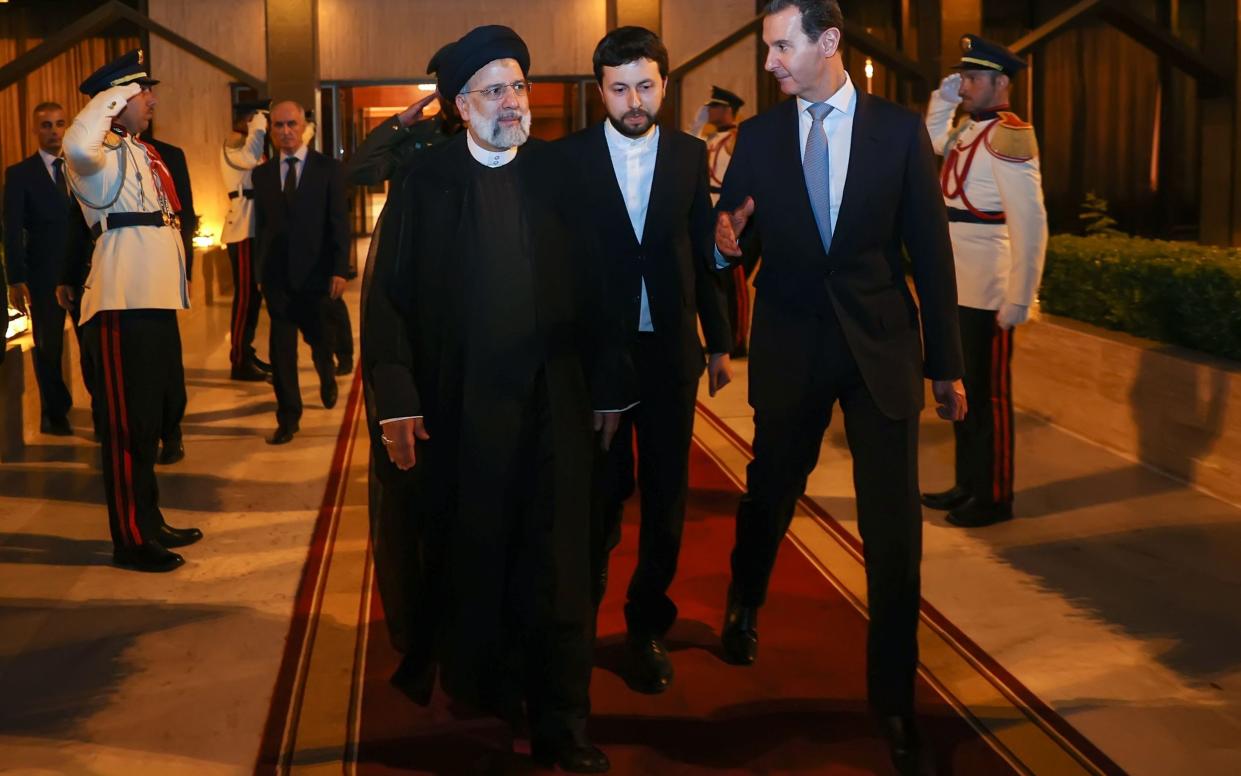Syria readmitted to Arab League after reconciliation between Saudi Arabia and Iran

Syria was readmitted to the Arab League on Sunday in a major coup for Syrian dictator Bashar al Assad made possible by thawing relations between Saudi Arabia and Iran.
The Syrian government had been mostly isolated on the world stage for more than a decade due to its lethal and bloody crackdown on peaceful protests in 2011 which led to a war that killed more than 500,000 people and displaced half of the country’s population.
The United Arab Emirates has been in favour of bringing Syria back into the regional fold for years, but faced opposition from many Arab states.
Saudi Arabia recently joined the lobbying efforts after it agreed to normalise diplomatic relations with arch-foe Iran, which is one of the main backers of the Assad regime.
"Syria's regional isolation is officially broken," analyst Fabrice Balanche said, calling Sunday's decision a "diplomatic victory" for Assad.
"The earthquake is the best opportunity to get closer without losing face," he said, adding that "Saudi Arabia's concern for Syria is part of the context of reconciliation with Iran."
Sunday’s decision dealt a heavy blow to Syrians in exile who fear that if Arab states decide to normalise diplomatic ties with Syria that refugees worldwide could be sent back to a brutal regime where they are seen as opponents.
'Whitewashing of atrocities'
The Syria Campaign, a rights group, slammed the decision to readmit Syria as a “whitewashing of 12 years of atrocities” and a “devastating setback for justice”.
“Nothing has changed since Syria was forced out of the Arab League over its brutal crackdown against peaceful protesters in 2011. The only thing that has shifted is the moral compass of Arab member states. Over the years the brutality and scale of violations committed by the regime have risen sharply,” said Laila Kiki, executive director of The Syria Campaign.
The decision, effective immediately, will allow Bashar al Assad to travel to Saudi Arabia for the next meeting of the Arab League on May 19.
In a statement, the foreign ministers who met in Cairo to make the decision on Sunday emphasised their "keenness to launch a leading Arab role in efforts to resolve" the Syria crisis and its "humanitarian, security and political consequences".
For many members the need to stop the spread of Captagon, a methamphetamine that has flooded the region and whose production is tied closely to the Syrian government, is a major reason for needing to reintegrate the regime. While it plagues the whole region, Saudi Arabia has become the biggest market for the drug while Iraq and Jordan struggle to stop it pouring over their borders.

